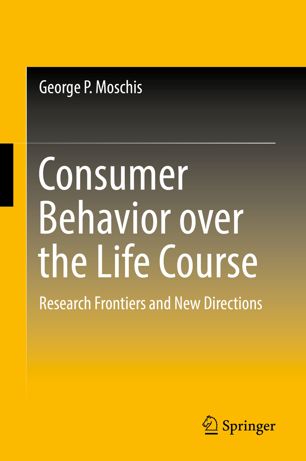

Most ebook files are in PDF format, so you can easily read them using various software such as Foxit Reader or directly on the Google Chrome browser.
Some ebook files are released by publishers in other formats such as .awz, .mobi, .epub, .fb2, etc. You may need to install specific software to read these formats on mobile/PC, such as Calibre.
Please read the tutorial at this link: https://ebookbell.com/faq
We offer FREE conversion to the popular formats you request; however, this may take some time. Therefore, right after payment, please email us, and we will try to provide the service as quickly as possible.
For some exceptional file formats or broken links (if any), please refrain from opening any disputes. Instead, email us first, and we will try to assist within a maximum of 6 hours.
EbookBell Team

4.4
22 reviewsThis book examines consumer behavior using the “life course” paradigm, a multidisciplinary framework for studying people's lives, structural contexts, and social change. It contributes to marketing research by providing new insights into the study of consumer behavior and illustrating how to apply the life course paradigm’s concepts and theoretical perspectives to study consumer topics in an innovative way.
Although a growing number of marketing researchers, either implicitly or explicitly, subscribe to life course perspectives for studying a variety of consumer behaviors, their efforts have been limited due to a lack of theories and methods that would help them study consumers over the lifecycle. When studying consumers over their lifespan, researchers examine differences in the consumer behaviors of various age groups (e.g., children, baby boomers, elderly, etc.) or family life stages (e.g., bachelors, full nesters, empty nesters, etc.), inferring that consumer behavior changes over time or linking consumption behaviors to previous experiences and future expectations. Such efforts, however, have yet to benefit from an interdisciplinary research approach. This book fills this gap in consumer research by informing readers about the differences between some of the most commonly used models for studying consumers over their lifespan and the life course paradigm, and providing implications for research, public policy, and marketing practice.
Presenting applications of the life course approach in such research topics as decision making, maladaptive behaviors (e.g., compulsive buying, binge eating), consumer well-being, and cognitive decline, this book is beneficial for students, scholars, professors, practitioners, and policy makers in consumer behavior, consumer research, consumer psychology, and marketing research.